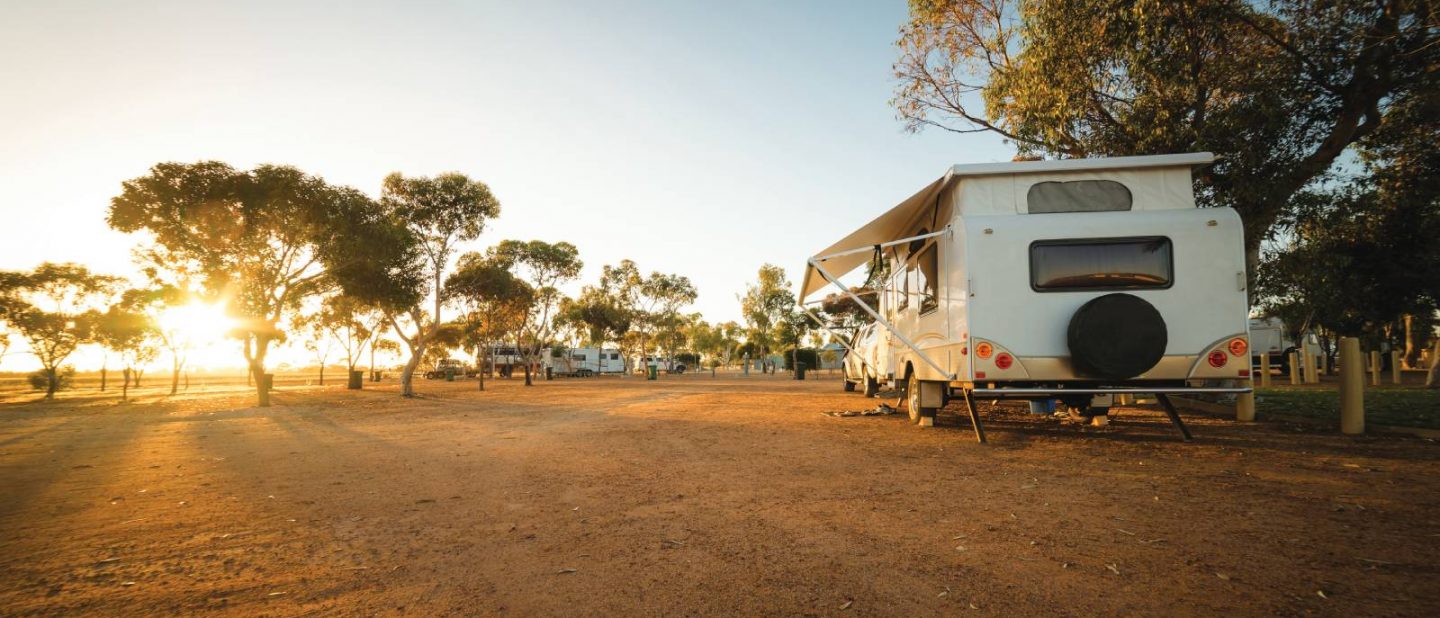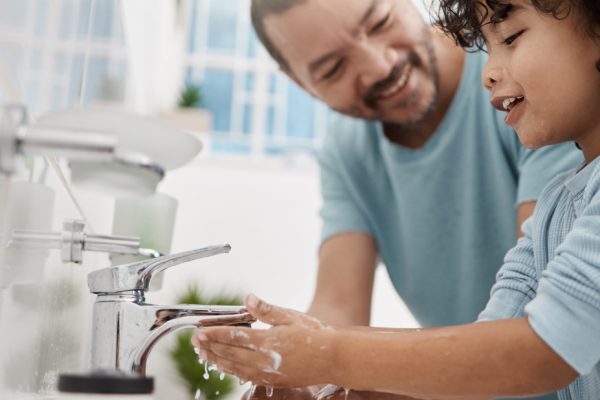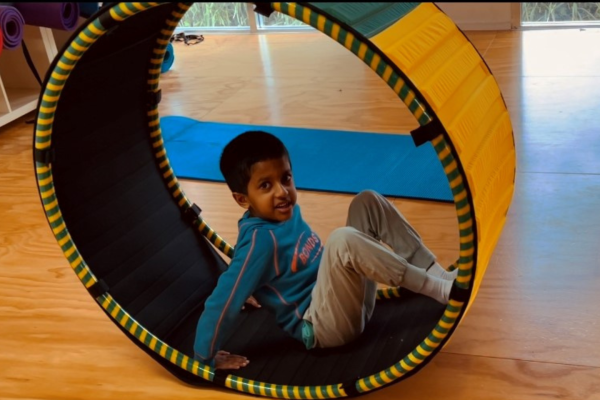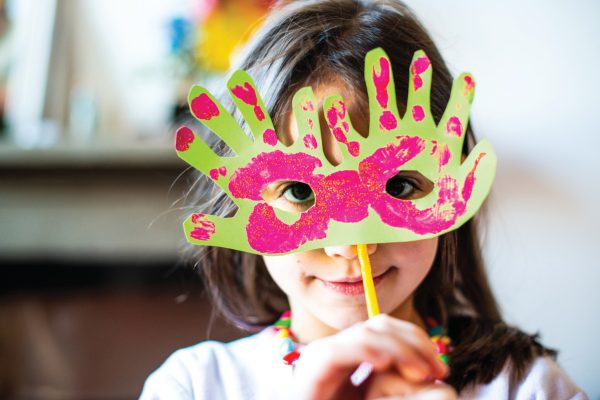
Let’s go camping
By Nicole Davis
Camping during the school holidays is an Aussie rite of passage for many families. The freedom of the open road, connecting with nature and getting back to basics is the perfect way to unwind after the stress and busyness of the year. Except, when you have a child, or children, with disabilities – the basics, well aren’t really that basic at all. It’s true that campgrounds and the wilds of the Australian bush haven’t traditionally been the most disability- friendly of locations but with a bit of planning and tenacity plus some knowledge about useful products and services it can definitely be done (and enjoyed by all!).
ARM YOURSELF WITH INFORMATION
If there’s one thing us special needs parents are good at it is intensive research. Before you commit to staying anywhere make sure you’ve done your homework to ensure that a location can accommodate your family’s needs. Many places will promote themselves as being ‘wheelchair’ accessible, but this may not apply to all areas.
Some things to considering depending on your situation could include:
• The accessibility of the site itself; are there steep slopes on site? Lots of steps? How close to your pitch can you keep your car?
• Do you need a larger than usual tent pitch to accommodate equipment?
• A big one for many families is toilet access and showering facilities – if disabled toilets are not available check if toilet blocks are big enough for wheelchair access or whether there is room in the stalls for two people.
• You also might want to check what local facilities are close-by in case you need medical assistance or access to a grocery for specific provisions.
When you’ve narrowed down your search it’s always a good idea to call and chat through your specific needs as online listings can be outdated or ambiguous. A call to a friendly campsite owner will give you the chance to go through some fine details and get some insider knowledge that may not be available online.
RESOURCES TO HELP YOU FIND WHERE TO STAY
Each state in Australia has a website for its National Parks where you can start your search for disability friendly accommodation and also find the latest info regarding what’s open and what accessible facilities and equipment they may have for hire or loan.
VIC: www.parks.vic.gov.au
NSW: www.environment.nsw.gov.au/nationalparks/wheelchair.aspx
QLD: www.parks.des.qld.gov.au
NT: www.parksandwildlife.nt.gov.au
WA: www.exploreparks.dbca.wa.gov.au
SA: www.parks.sa.gov.au/
TAS: www.parks.tas.gov.au
To varying degrees, some of these websites also provide information on other all-abilities services provided within the parks which could help you narrow down a location for your trip. For example, Parks Victoria have locations with all terrain wheelchairs, an accessible canoe launcher, beach wheelchairs and more. For families with autistic children they also have social script resources for a number of locations that that have been developed in conjunction with AMAZE.
We have also compiled a list of accessible facilities and features available at National Parks around Australia, which you can read here.
OTHER RESOURCES TO LOOK AT INCLUDE:
A really useful resource dedicated to wheelchair users with accommodation reviews including space dimensions and available facilities.
Let’s Go Caravan and Camping www.letsgocaravanandcamping.com.au
Use their search facility to find destinations around Australia that have disabled facilities.
Camping Victoria – www.campingvictoria.com
Similar to the site above but for Victoria only; you can search by sites with wheelchair access.
PRODUCTS AND SERVICES
Once you have your destination sorted, it’s time to start thinking about what to take. Of course, you’ll have all your child’s usual aids and equipment, but there are also some really cool accessible products out there including waterproof sleeping bag liners, hammocks, and portable beds.
For anyone who’s really serious about their camping and who needs to accommodate a wheelchair user then take a look at AccessaVan – they’re the first company in Australia that specialises in the provision of quality custom wheelchair accessible caravans. The founder of the company, Anton Wake, became a paraplegic in 1991 and although this may have limited his physical ability it did not diminish his passion for travelling around Australia.
If you’re not up for purchasing a whole new van then the company can also make modifications to existing equipment you may already own; perhaps you need a wider entry door fitted to your existing caravan? Wheelchair lifts or ramps? They can also modify bed configurations, bench heights, install handrails etc.
Something to consider for a future NDIS plan perhaps?
Visit accessavan.com.au to find out more.
If you’d prefer to rent rather than buy or modify your own equipment, then an accessible rental option is provided by Wheelie Campers who are based on the Gold Coast in QLD and provide Australia’s first self-drive wheelchair accessible camper vans. Their vans can be rented as self-drive with pick up on the Gold Coast or delivered to your door nationwide. They supply a vehicle which will accommodate fivethen Emma from The Wiggles (now Emma Memma) passengers plus a driver and a wheelchair and there is also the option for them to provide you with a driver.
The company also provides the services of Accessible Travel Consultants. With info on multiple accessible campsites that let you get close to nature they can work with you to tailor a trip that suits your needs.
OTHER OPTIONS
If tent-life – even for a few days feels too much of stretch for your family, then holiday parks with a variety of accommodation options can provide a similar ‘great outdoors’ experience without quite so much of the ‘outdoors’ that traditional camping supplies.
Big4 provide brilliant holiday park accommodation around the country and a number of their locations have accessible cabins and villas within their parks.
BIG4 Ballarat Goldfields Holiday Park in Victoria is just one destination where they have implemented a program to improve their accessibility and create an inclusive customer experience for all travellers.
According to their website, some of the initiatives they’ve implemented include:
• Ramp or ground access in a number of areas such as to the reception, the swimming pool, amenities building, games room and more
• Ramp or ground access for some cabin accommodation
• Accessible car parking at accommodation and camping areas
• Sites conveniently located close to the family bathroom
• They also teamed up with then Emma from The Wiggles (now Emma Memma), to create a social script for autistic people and their families to prepare for a holiday
Also, of note for families of autistic children, Big 4 Renmark Riverfront in South Australia – generated a huge amount of media attention when it launched its sensory room in late 2018. Reilly’s Room, as it’s known, was carefully designed in close consultation with an occupational therapist, a specialist autism teacher, and parents of autistic children. The facility is set up for use by one family at a time for the comfort and benefit of the user and includes a freestanding hammock, crash mat and weighted blankets and cushions, projector lamps, a gym ball, activity boxes and more.
As with our camp site tips, it’s always best to call ahead before making a confirmed booking to ensure that the facilities offered do indeed meet your needs.
Visit www.big4.com.au to start your search and also consider Reflections Holiday Parks; another provider of holiday accommodation with a number of parks around the country that have accessible features – reflectionsholidayparks.com.au.
Three final thoughts to make it work:
START SMALL AND FAIRLY LOCAL
If it’s your first time camping as a family then jumping straight in with a two week, back to basics outback trip may not be the way to go. If it is, then good luck to you (send photos!) but for those of a less cautious nature a long weekend just a short drive from home might be the way to start.
Have a plan B (and C)
If things inevitably don’t work out for some reason while you’re away it’s always good to know in advance what your options are.
Think about food
Having a meal plan for the trip will take a lot of pressure off – especially if your child has quite specific needs. Finding out that the only grocery store within 30kms of your camp site doesn’t stock the only brand of white rice your child will eat isn’t going to set the tone for a relaxing few days away.
Oh, and last but not least, don’t forget the wine!







